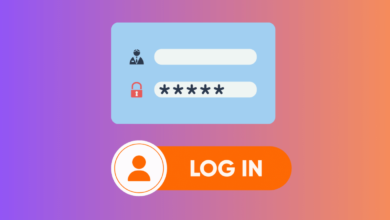Blockchain-Based Identity Verification in Digital Wallets

In today’s fast-paced digital economy, the need for secure and efficient identity verification processes has never been more crucial. Digital wallets have become an integral part of our financial landscape, allowing users to store and manage their assets seamlessly. However, with this convenience comes the pressing need for robust identity verification systems to prevent fraud, identity theft, and unauthorized transactions. Blockchain technology offers a promising solution, enabling enhanced identity verification in digital wallets. This article explores how blockchain-based identity verification can revolutionize digital wallets, particularly in the realm of crypto prop trading.
The Need for Identity Verification
Identity verification is essential for a variety of reasons, including regulatory compliance, fraud prevention, and user trust. In the world of digital wallets, verifying user identities is critical to ensure that transactions are legitimate and that funds are protected. Traditional identity verification methods, such as government-issued IDs or centralized databases, can be slow, cumbersome, and vulnerable to breaches.
For users involved in crypto prop trading, where significant financial transactions occur frequently, a reliable identity verification process is crucial. Without proper verification, users risk becoming victims of scams, leading to potential financial losses and diminished trust in the platform.
How Blockchain Enhances Identity Verification
1. Decentralization and Security
One of the key advantages of blockchain technology is its decentralized nature. Unlike traditional identity verification methods that rely on centralized databases, blockchain distributes user data across a network of nodes. This decentralization significantly reduces the risk of data breaches since there is no single point of failure.
For digital wallets used in crypto prop trading, this means that users’ identity information is securely stored across the blockchain, making it nearly impossible for hackers to manipulate or access sensitive data. Moreover, the immutability of blockchain records ensures that once data is entered, it cannot be altered or deleted without consensus from the network.
2. Enhanced Privacy
Blockchain technology enables users to maintain greater control over their personal information. Through the use of cryptographic techniques, users can create digital identities that allow them to share only the necessary information without exposing their entire identity.
In the context of digital wallets, this means that users can verify their identity without disclosing sensitive information like social security numbers or bank details. For crypto prop trading participants, this level of privacy is essential, as it protects them from potential fraud while still allowing them to engage in necessary transactions.
3. Efficient KYC Processes
Know Your Customer (KYC) regulations require businesses to verify the identities of their clients to prevent money laundering and other illicit activities. Traditional KYC processes can be time-consuming and labor-intensive, often requiring multiple documents and in-person verification.
Blockchain-based identity verification streamlines the KYC process by allowing users to create a digital identity once, which can then be verified and reused across multiple platforms. This eliminates the need for redundant verification procedures and speeds up the onboarding process for users.
For traders in the crypto prop trading space, this means they can quickly and easily verify their identities on multiple platforms without having to undergo repeated verification processes. This efficiency enhances the overall user experience and encourages more participation in the market.
4. Smart Contracts for Verification
Smart contracts are self-executing contracts with the terms of the agreement directly written into code. These contracts can automate the identity verification process, ensuring that all necessary checks are completed before allowing access to a digital wallet or transaction.
For example, a digital wallet can be programmed to only allow transactions if the user’s identity has been verified against the blockchain. This automated process reduces the risk of human error and enhances security, making it particularly valuable for high-stakes environments like crypto prop trading.
5. Building Trust with Transparency
Blockchain’s inherent transparency allows all transactions and identity verifications to be publicly recorded and accessible to authorized parties. This transparency fosters trust between users and digital wallet providers, as all verification processes can be audited and traced back on the blockchain.
For crypto prop trading, where trust is paramount, having a transparent identity verification system reassures users that their identities are protected, and all transactions are legitimate. This trust can lead to increased user engagement and participation in trading activities.
Read also: Recent technological advancements in washer
Conclusion
Blockchain-based identity verification represents a significant advancement in the functionality and security of digital wallets. By leveraging decentralization, enhanced privacy, efficient KYC processes, smart contracts, and transparency, blockchain technology addresses many of the critical challenges associated with identity verification in the digital age.
For users engaged in crypto prop trading, the benefits of blockchain-enhanced identity verification are particularly profound. As the financial landscape continues to evolve, embracing these innovative technologies will be essential for ensuring user trust, preventing fraud, and enabling seamless transactions.
In summary, as digital wallets become increasingly integral to our financial lives, the integration of blockchain-based identity verification systems will play a crucial role in enhancing security and fostering a more trustworthy digital economy. By adopting these solutions, we can create a safer environment for all users, particularly those navigating the complexities of the crypto trading world.





